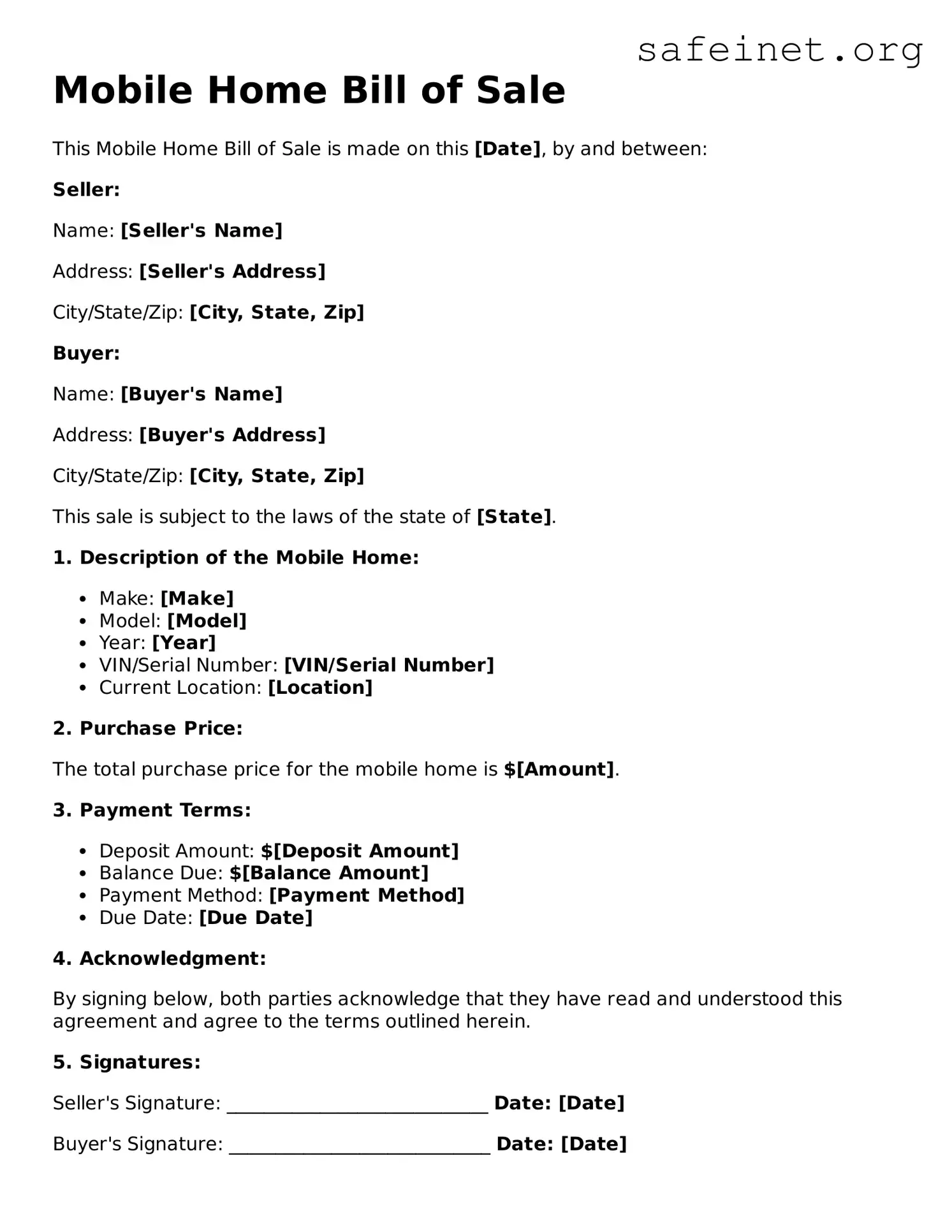What is a Mobile Home Bill of Sale?
A Mobile Home Bill of Sale is a legal document that records the transfer of ownership of a mobile home from one party to another. It serves as proof of the sale and includes details about the mobile home, such as the make, model, year, and vehicle identification number (VIN), as well as information about the buyer and seller. This document is important for both parties as it helps establish the legal ownership of the mobile home following a sale.
Why is a Mobile Home Bill of Sale important?
This document is crucial for several reasons. First, it provides evidence that a transaction took place, which can be beneficial in the event of future disputes. It also helps facilitate the transfer of the mobile home’s title and any related registration with the appropriate authorities. Furthermore, having a properly completed Bill of Sale helps protect both the seller and the buyer by clarifying the terms of the sale.
What information should be included in a Mobile Home Bill of Sale?
The Mobile Home Bill of Sale should include various pieces of information. Essential details are the names and addresses of both the buyer and seller, a full description of the mobile home (including VIN, make, model, and year), sale price, and the date of the transaction. Additionally, it's advisable to note any warranties or representations made by the seller regarding the mobile home. This clear documentation aids in future legal or registration processes.
Who needs to sign the Mobile Home Bill of Sale?
Generally, both the seller and the buyer should sign the Mobile Home Bill of Sale. Their signatures indicate that they agree to the terms laid out in the document. It is useful to have a witness or a notary present during the signing, although this is not always legally required. Having additional verification can enhance the credibility of the document if any questions arise later.
Is a Mobile Home Bill of Sale legally binding?
Yes, a Mobile Home Bill of Sale is typically considered a legally binding document, provided it meets certain conditions. Both parties should enter into the agreement voluntarily, the terms must be clear, and the document should be signed by both the buyer and the seller. However, the enforceability can depend on state laws, as some areas might have specific regulations regarding mobile home transactions.
Where should I store the Mobile Home Bill of Sale?
After the Mobile Home Bill of Sale has been signed, it is vital to store it in a safe location. Both the buyer and seller should keep copies for their records. Retaining the document can be significant for tax purposes, registration, or if disputes arise. It is also recommended to keep an electronic copy for easy access.
Can a Mobile Home Bill of Sale be modified after signing?
Once a Mobile Home Bill of Sale has been signed by both parties, modifying the document can be problematic. If changes are necessary, it's best to create a new document that clearly states the new terms and have both parties sign it again. This helps prevent any confusion and ensures that both parties are aware of and agree to the new conditions.
How do I use a Mobile Home Bill of Sale for registration purposes?
To use a Mobile Home Bill of Sale for registration, the buyer may need to present it to the appropriate state or local authority along with other documentation, such as proof of ownership and identification. The Bill of Sale serves as a record of the transaction and is usually required to transfer the title and register the mobile home in the new owner's name. It's advisable to check with local agencies to ensure all necessary paperwork is provided.
